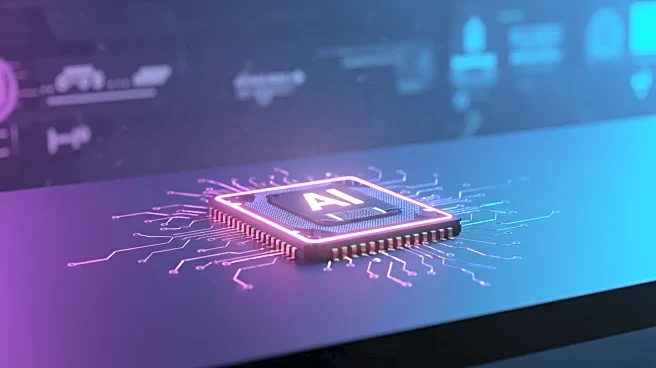What is the story about?
What's Happening?
Hospitals and health systems are increasingly adopting AI strategies to address financial and operational challenges in revenue cycle management (RCM). A McKinsey study highlights that providers spend over $250 billion annually on billing and collections, plagued by inefficiencies and manual processes. With 50% of hospitals reporting over $100 million in accounts receivable aged more than six months, AI-powered platforms are emerging as critical tools to reduce friction, improve cash flow, and enhance ROI. These technologies aim to streamline operations and allow healthcare organizations to focus on patient care.
Why It's Important?
The integration of AI in RCM is crucial for healthcare providers facing rising administrative complexities and aging IT infrastructure. By reducing costs and improving efficiency, AI can significantly impact the financial health of hospitals, enabling them to allocate more resources to patient care. The shift towards AI-driven solutions reflects broader trends in healthcare, where technology is increasingly seen as a key enabler of transformation. As hospitals strive to maintain financial stability, AI offers a pathway to optimize operations and enhance service delivery.
What's Next?
Healthcare executives and RCM leaders are likely to continue exploring AI solutions to further streamline billing and collections processes. The focus will be on aligning technology with financial performance goals, potentially leading to widespread adoption of AI across the industry. As AI proves to be a transformative force in healthcare payments, stakeholders will monitor its impact on cost-to-collect economics and overall efficiency. Future developments may include enhanced AI capabilities and integration with existing systems to maximize benefits.
Beyond the Headlines
The adoption of AI in healthcare RCM raises important considerations regarding data security and privacy. As hospitals increasingly rely on technology to manage sensitive financial information, ensuring robust cybersecurity measures will be essential. Additionally, the shift towards AI-driven processes may necessitate workforce adjustments, as manual tasks are automated. These changes could influence employment patterns and require new skill sets within the healthcare sector.















